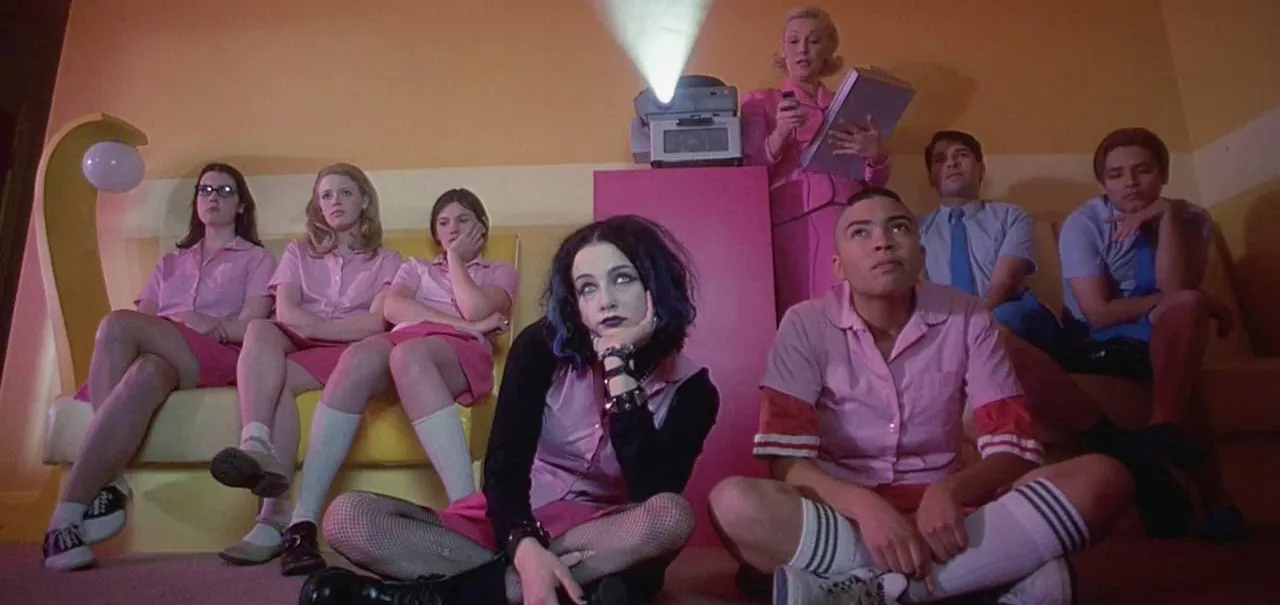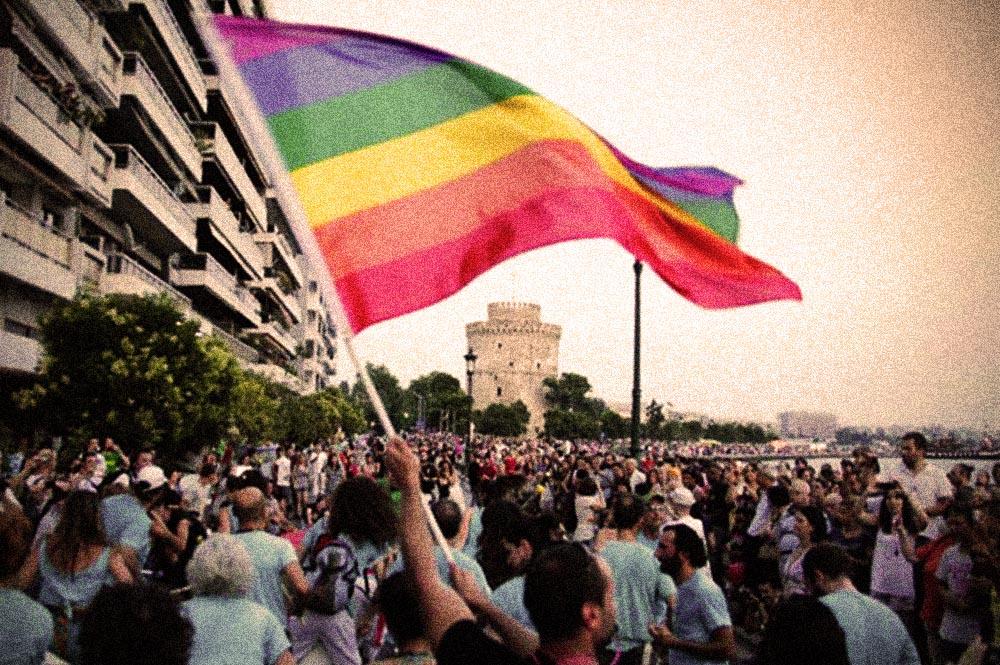By Valia Nikolaidou,
Throughout my teenage years, I was always very passionate when it came to LGBTQIAP+ issues. Growing up, a lot of my friends and people from my surroundings were members of this supportive community; a lot of my favorite singers and bands were deemed “gay icons”; in general, much of the media I was consuming had LGBTQIAP+ undertones. One of the most iconic and cult LGBTQIAP+ movies I watched during my teenage years and left an impact on me was But I’m a Cheerleader.
Coming out (pun intended) in 1999 starring Natasha Lyonne, Clea DuVall, and the well-known gay icon and self-proclaimed queen of drag, RuPaul, the film was revolutionary for the time it debuted. The plot revolves around Megan, a femme-presenting and popular high school girl, captain of her school’s cheerleading team, who is sent off to a conversion camp because her extremely conservative and Christian family thinks she is a lesbian and needs to be “cured” from this disease. Slammed by critics upon its release, it has since gained a cult following amongst the LGBTQIAP+ community. However, this lighthearted comedy with the happy ending, where Megan flees from the camp with her girlfriend, ready to unapologetically live her life the way she wants to, is sadly not the reality.

For starters, the official definition of conversion therapy is “any attempt to change a person’s sexual orientation, gender identity, or gender expression”, according to the Gay & Lesbian Alliance Against Defamation (GLAAD). Apparently, only 6 countries in the world have completely banned conversion practices (Brazil, Germany, France, Ecuador, Canada, and Malta) and some others have begun implementing laws and prohibitions concerning their medical professionals’ jurisdictions on this matter. When it comes to the situation in Greece, the law is ambiguous and not particularly effective.
On the one hand, it technically prohibits conversion therapy to be inflicted upon minors but at the same time, it can be allowed if it comes from an authoritative and respectable medical figure. Obviously, this loophole in the system leaves room for plenty of illegal and immoral pseudo-scientists and psychologists to act based on their regressive and – borderline – criminal beliefs. Based on an ongoing study from 2020, conducted by the Greek philanthropic organization Orlando LGBT+, there are approximately 800 recent cases of conversion therapy in our country. These numbers are very threatening and can be very alarming as to how undercover conversion therapy practices can really be.
A lot of the procedures oftentimes involve the element of religion. Homosexuality or gender identities that deviate from “normal” standards are seen as “evil” and “devilish” characteristics that can be “cured” through extensive praying and study of the religion’s practices. Priests or pastors are in charge of putting LGBTQIAP+ youth back into their supposed “normal” state. Another aspect of conversion therapy is heavily focused on the medical industry. More serious cases have been given harmful medicine, hormones, or even electric shock “therapy”; there are countless horrifying stories of people going through those dangerous practices, which then of course had a serious impact on their mental health.
One of the most famous examples is Alan Turing’s story. The famous English mathematician, who is the father of theoretical modern science and helped the Allies win WWII with his invention of the cipher machine called the Enigma, was coerced into attending conversion therapy and undergoing hormonal “chemical castration”. This bright mind ultimately committed suicide; further proof that this inhumane practice can cause serious mental health issues. Moreover, psychological war is also very common. Constantly disregarding one’s sexuality or gender identity, demonizing it, and shaming it, brings down the confidence of LGBTQIAP+ youth and makes them all the more confused about themselves. It is fairly obvious that someone does not become part of the community but instead, is born into it. Besides, who would want to get criticized every day of their lives, solely for being their true selves?

Educating ourselves on LGBTQIAP+ issues and history is extremely important, even if we do not fall under this category. What those people need (especially youngsters) are strong-willed allies who will respect their background and fight equally as hard for their right to be unapologetically who they are. The first towards any kind of change comes from education. Our country’s educational system needs to incorporate up-to-date, LGBTQIAP+-related subjects in the curriculum. The younger kids start to learn about these serious issues, the more protected LGBTQIAP+ youth will be. Generally, there are obviously many more steps to be taken by the government to ensure the community’s equal place in society. However, according to a famous quote by prominent lesbian activist Barbara Gittings:
“Equality means more than passing laws. The struggle is really won in the hearts and minds of the community, where it really counts.”
References
- What is ‘conversion therapy’?. equalitycaucus.org. Available here
- “Θεραπείες” μεταστροφής ή κοινά βασανιστήρια; Οι ελλείψεις στον νόμο και οι συγκλονιστικές μαρτυρίες. news247.gr. Available here
- Η Θεραπεία Μεταστροφής της (Ανήλικης) Φαίδρας – «Μου Έδιναν Αγωγή για να Μη Βλέπω Ερωτικά τις Γυναίκες». vice.com. Available here




